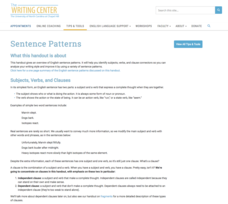Curated OER
Narratives
Add to the narrative writing experience. Elementary or middle school writers listen to the teacher read a descriptive passage, then reread the same passage silently. They highlight sensory details and figurative language, then orally...
Curated OER
My Monster
Explore descriptive language. Learners read a series of similes describing the eyes, teeth, skin, and other features of a monster. Then, they describe their own imaginary monster using similes and adjectives. Very creative!
Curated OER
Reading Examples
Young writers read excerpts from Gary Paulsen's memoir to identify figurative and literal language that contain sensory details. They determine which selections are examples of sensory language and fi the language is used literally or...
Curated OER
Writing Prompts for High School
Are you teaching a high school language arts class and stumped for writing topics? Five pages of writing prompts for all kinds of writing should help you out. Many of these prompts refer to texts that are not included in this resource,...
Curated OER
Arctic Writing
Fifth graders analyze photographs in order to write descriptively. In this descriptive writing lesson, 5th graders use the Internet to research and view photographs of the arctic. Students use descriptive language to write...
Curated OER
Alphabet Poems
Develop fluency with a variety of works. Help kindergartners use multiple strategies to understand text and decoding. They will create an alphabet poem book on Kid Works 2 to illustrate and write their own poem. In the end, they will...
Curated OER
Synonyms
Use this resource to help learners improve the quality of their writing. Discuss the importance of using synonyms for commonly used words. Class members also learn to use a thesaurus, and revise a writing sample to include more...
T. Smith Publishing
Your Five Senses
Using the five senses is a creative way to write descriptively. Learners read 25 words, both nouns and verbs, and place them into the category labeled with the correct sense.
VIF Learning Center
Languages as Reflection of Cultures and Civilizations: French Speaking Countries
Expand your class's vision of the French-speaking world by conducting this research project. Pupils focus on building 21st-century skills while they look up information about a French country and put together presentations.
EngageNY
Grade 9 ELA Module 1, Unit 1, Lesson 15
How much progress has Claudette made at the end of "St. Lucy's Home for Girls Raised by Wolves"? Ninth graders note evidence for and against Claudette's successful adaptation into human society with a graphic organizer. Additionally,...
Saddleback Educational Publishing
The Jungle Book: Study Guide
Delve into The Jungle Book by Rudyard Kipling with a helpful study guide. Crossword puzzles, comprehension questions, character descriptions, chapter summaries, and vocabulary exercises connect readers with the classic text of a boy...
EngageNY
Grade 11 ELA Module 1: Unit 1, Lesson 2
What do your words say about you? Scholars look closely at the Duke's words about the Duchess in Robert Browning’s My Last Duchess. Readers talk in groups to determine how the words help them learn more about the Duke. Learners also...
State University of New York
Going Back in Time Using “George Washington’s Socks”
After reading Elvira Woodruff's George Washington's Socks, young readers and writers embark upon writing their own historically based story, with a focus on developing ideas and details throughout the piece. In small groups, class...
University of North Carolina
Sentence Patterns
In an ideal world, sentences in a college-level essay should feature a variety of sentence types. In reality, most papers stick to simple and compound sentences, two of the types a handout on sentence patterns discusses. Part of a larger...
University of North Carolina
Abstracts
Some of the best information to include when writing a research paper doesn't come from books, magazine articles, or informational websites—it comes from dissertations. However, reading an entire dissertation is often a daunting task....
Curated OER
Describing Characters with Rich Language
Second graders describe characters. In this describing characters lesson, 2nd graders dissect the text of a sample story and identify more descriptive words than those generally used. Students select their own character to describe from...
Project Noah
Writing Goes Wild
Young scientists develop their observation and writing skills as they craft and then post a detailed description of a plant or animal they have spotted and photographed.
Curated OER
"I" Witness to History
Young journalists write diary entries from the point of view of a person involved in a historical event. They focus on including facts, clear narration, and accurate description of the individual's feelings.
Curated OER
Story Telling through Photography
Use this writing and photography lesson plan in your descriptive writing unit. Elementary and middle schoolers write and create a story line incorporating photos from Inspiration or their own personal photos. They experiment with...
Curated OER
Dear Diary
Work on narrative writing with this lesson plan, in which middle schoolers analyze the characters from a selected piece of literature and write narrative diary pieces as the character. They work to understand the point of view of the...
Scholastic
Reading Characters
Philip Pullman's The Golden Compass provides the text for a study of how writers bring characters to life. Using the provided character mapping worksheets, readers respond to questions and then write a short character sketch.
Digital Public Library of America
Teaching Guide: Exploring Little Women
Louisa May Alcott's Little Women is a literary masterpiece as well as a timestamp of the formative mid-nineteenth century in America. Using a primary source set of photographs, letters, and portraits, readers discuss the ways...
Roald Dahl
Charlie and the Chocolate Factory
The Charlie and the Chocolate Factory unit is a golden ticket for teachers looking for nicely written plans. Elementary and middle schoolers draw their impressions of characters, design and market their own candy creations, and use...
Curated OER
ESL: Practice Using Present Progressive Tense
Small, cartoonish pictures of people expressing emotions and actions (blowing his nose, holding her head and frowning, dancing, smiling) provide the basis for writers to describe the feelings and experiences taking place. Help your ESL...

























